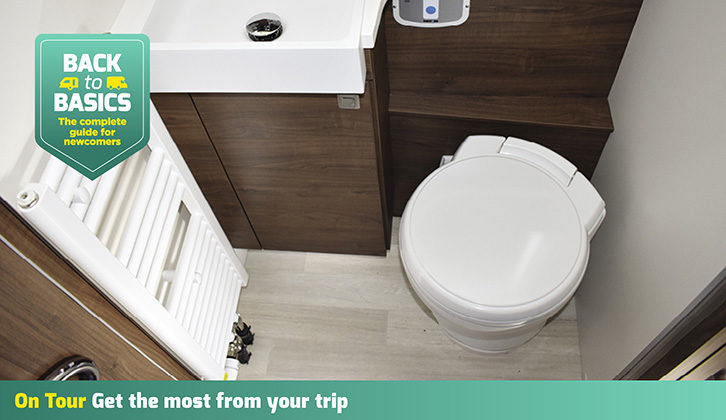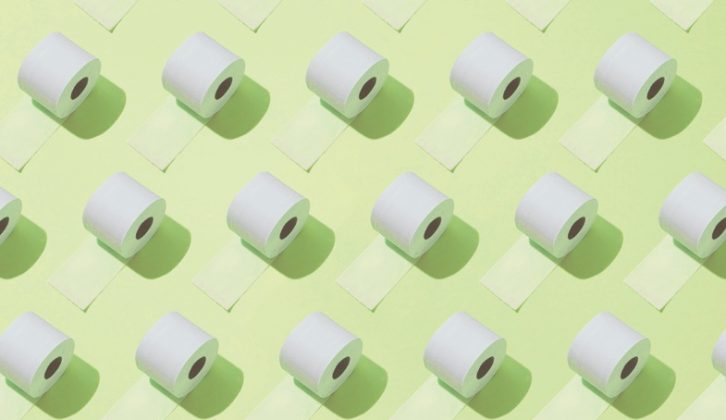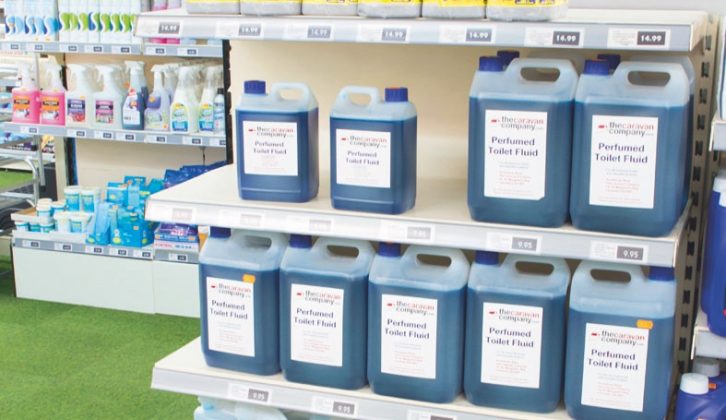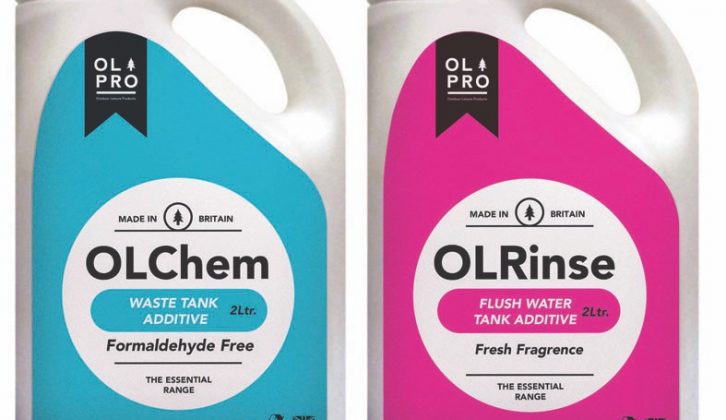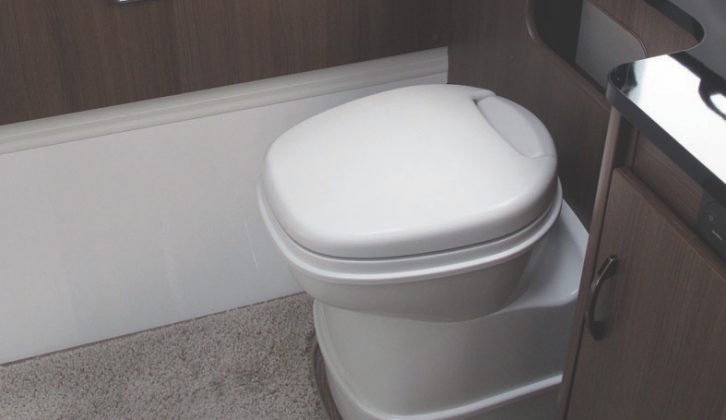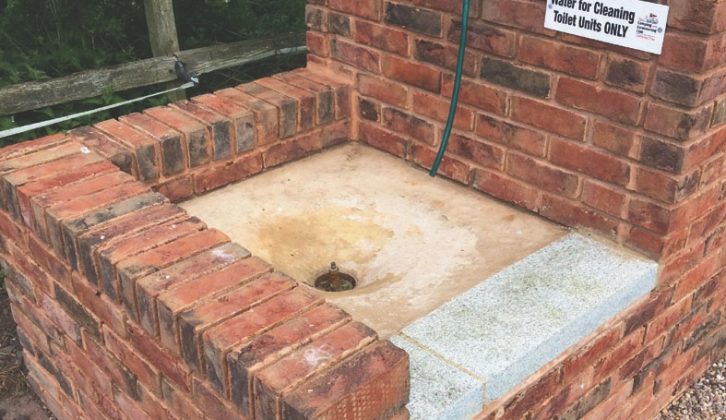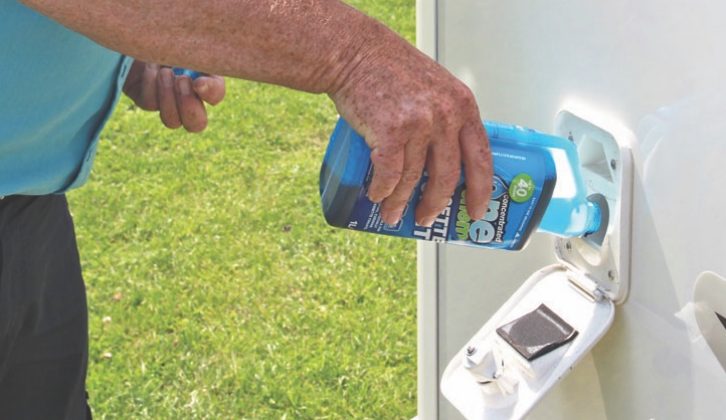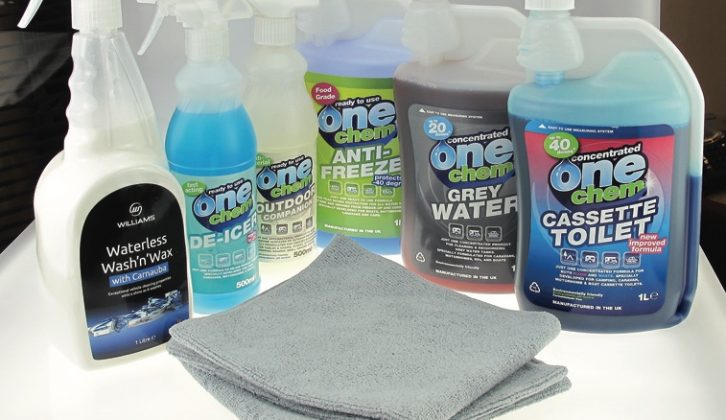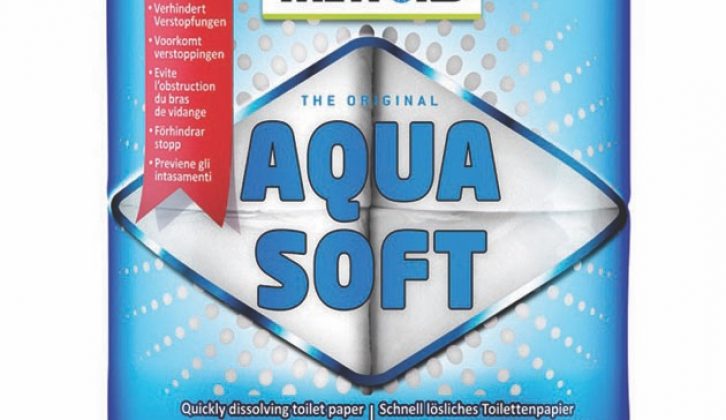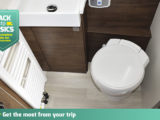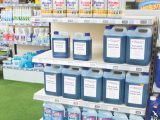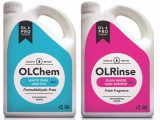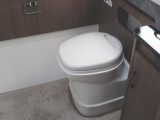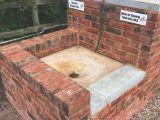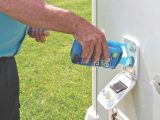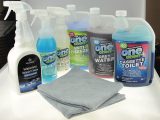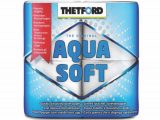Having to empty the toilet cassette is something that could deter newcomers to the world of motorcaravanning. However, those of us with a bit more experience will know it’s not the daunting prospect it could initially seem, thanks in part to the fragrant chemicals on the market.
Toilet chemicals come in three main types: blue, green and pink. The blue and green will go into the waste cassette, while the pink goes into the flush reservoir. Then, at a press of the button, the toilet bowl is rinsed, disinfected and fragranced.
The toilet chemical is our friend, but some of the products out there are more eco-friendly than others. As we all try to do our bit to help the environment, picking the appropriate toilet chemical can really make a difference, especially on the campsites that have made the effort of creating eco-friendly waste disposal systems.
So here’s the ‘loo-down’ on what these different chemicals do, and how you can do your bit for the planet.
Cassette chemicals
Toilet chemicals have two main tasks: firstly, to reduce odours, by minimising gas formation, and secondly, to help with the breakdown of waste, liquefying it so it can be disposed of more easily.
Some also act as an antifreeze, which should appeal to those who tour all year. For example, Thetford Aqua Kem Green only freezes below -20°C.
Back in the day, toilet chemicals were formulated to disguise the smell, rather than helping to speed up the process of breaking down waste.
Most of those products contained formaldehyde, a toxic compound that’s effective in killing bacteria – despite the fact that it’s these very bacteria that ‘digest’ the waste in preparation for its release into the environment.
Formaldehyde has been banned by many environmentally friendly sites, which now use natural ecosystems to treat their waste, because it damages the natural processes involved.
Glutaraldehyde and biocides should also be avoided for this reason.
These days, it’s generally accepted that formaldehyde-free formulations are the best option. Most will have the words ‘Formaldehyde Free’ clearly displayed on the bottle. Thetford, for example, has been formaldehyde-free since 2003.
Modern chemicals increasingly use enzymes and natural substances to aid the decomposition of waste. These break down the waste at a molecular level, making it easier for naturally occurring bacteria to ‘digest’ it.
Motorhome cassette toilets
Really, the system couldn’t be simpler. For example, Thetford and Dometic manufacture fitted, flush toilets for leisure vehicles. The waste cassette sits directly below the toilet bowl, and the waste matter is stored in this container until it’s full.
Both brands are recommended, and feature an airtight, sliding seal, which you open when you use the toilet and then close afterwards. Once full, the cassette is wheeled to the disposal point and the waste poured away.
The waste, once it has been disposed of at the campsite’s chemical disposal point (which is sometimes called the Elsan point), will then drain off into a septic tank of the sewer system, to go on its way to the local sewage treatment plant.
Tablets and pods
Toilet chemicals are now available as soluble tablets, pods or sachets. These are simpler and cleaner to use, but you will usually pay a premium for them. You simply drop one into the cassette and then add the prescribed amount of water to dilute it.
Combined chemicals
Some firms, including One Chem, produce toilet chemicals that are designed to serve two purposes.
For example, Concentrated One Chem Cassette Toilet serves as a flush fluid (when diluted to 5ml plus eight litres of water), and waste tank fluid (when 20ml of the product is diluted in the cassette manufacturer’s recommended amount of water). It’s easy to use and simple to store.
Flush fluid
Usually coming in a fetching shade of pink, toilet flush fluid also has a pleasant scent. In the same way as cassette chemicals, it has to be diluted for use.
You’ll find a flap on the outside of your motorhome, close to the toilet. Inside is the opening, leading to the flush reservoir.
Pour in the prescribed amount of flush chemical, then add the correct amount of water. A full reservoir will usually last two to five days.
Some people have found that adding certain chemicals to the flush system causes algae to build up, and so prefer to use untreated water instead.
Concentration
Bigger isn’t necessarily better. Always check the concentration/dilution for your chemical, before you buy. Weaker solutions can often end up costing you more, despite the bigger container.
Using the toilet
There’s a procedure for using a cassette toilet – lift the lid, open the valve, press the flush briefly, do your business, flush, close the valve and drop the lid.
The cassette’s sliding blade valve works better if you spray it from time to time with a lubricant. Thetford makes such a product, although some people swear by olive oil! Thetford also sells a fragrant, pink Aqua Rinse Spray for cleaning the bowl.
As soon as the red ‘full’ light comes on, empty the tank (make sure the kids are briefed on this!). You really don’t want to be dealing with an overflow.
Emptying the cassette
Go outside, unlock the cassette locker and open the hatch. You usually need to nip the yellow or orange handles together with the grey grip to release the cassette. This orange grip doubles as the extending handle, so you can trundle the cassette on its wheels.
At the disposal point, twist the fill/empty nozzle around and remove the cap. Put this cap well away from the disposal hole – you don’t want to have to fish it out.
Press the orange vacuum – release button on the cassette and pour the contents into the disposal point. The button lets in air, minimising splashing. Once the cassette is empty, rinse it out several times with clean water.
Before replacing the cassette, add a dose of blue or green chemical (the lid you removed usually has measuring marks) with the amount of water specified by the manufacturer. Now just pop the cassette back in its locker.
Where to buy
Try to avoid buying toilet chemicals at the site shop! They know you are likely to be desperate and will often charge accordingly. Although it’s always good to support small retail outlets, your best bet to save money is to purchase sufficient toilet chemicals before you leave, and try to buy in bulk.
Green touring
One press of the toilet flush at home sends gallons of fresh water into the bowl and down the drain.
Apart from being a substantial waste of an increasingly precious resource, all of that ‘waste’ water has to be cleaned and recycled – at great cost. Something we rarely ever think about.
One of the many positive effects motorcaravanning can have is to make all of us think more carefully about water consumption. When you have to refill a 100-litre water tank every few days, you quickly begin to appreciate water as a valuable commodity.
Toilet paper
That fluffy puppy in the television advertisements might be very cute, but these days, we all have to be thinking a bit more carefully about the environment when it comes to waste disposal.
Luxury, multi-ply toilet papers (and particularly wet wipes) are often too bulky for motorhome toilets, and for the disposal further down the line.
They can cause clogging in cassette toilets, septic tanks and natural waste-processing, such as reed-beds. Consider quick-dissolve tissue, or cheaper paper, which disintegrates more easily, too.
Grey water
Grey water (waste from sinks, basins and showers) is less malodorous and harmful than toilet waste, but you should still consider using a chemical cleaner to minimise bacterial growth and keep the tank smelling fresh and pleasant.
Using ‘bio’ washing-up liquid in your sink, instead of an antibacterial, means natural bacteria that break down the waste are not diminished.
Non-formaldehyde formulations
Shop around a bit and you can find toilet chemicals that do not contain formaldehyde. These are just some of the products now on the market.
- Blue Bio £12.99 (1 litre)
- Blue Diamond When Nature Calls £6.99 (2 litres)
- Dometic Powercare/GreenCare Tabs £13/£15 (16 tabs)
- Elsan Organic £8.95 (2 litres)
- Fenwicks Top & Tail £15 (2.5 litres)
- Kampa Green £4.99 (2 litres)
- OLChem and OLRinse Twin Pack £12 (2 x 2 litres)
- Olpro Bottom & Top £9 (2 litres)
- One Chem Cassette Toilet £11.49 (1 litre, 40 doses)
- Thetford Aqua Kem Blue £12.99 (2 litres)
- Thetford Aqua Kem Green £14.99 (2 litres)
Looking for more great on tour inspiration? Then be sure to head to our Back to Basics – On Tour category, where you can find plenty of ideas that will help you take your motorhome adventures to the next level!
If you liked this…READ THESE:
If you’e enjoyed reading this article, why not get the latest news, reviews and features delivered direct to your door or inbox every month. Take advantage of our brilliant Practical Motorhome magazine SUBSCRIBERS’ OFFER and SIGN UP TO OUR NEWSLETTER for regular weekly updates on all things motorhome related.
The toilet chemical is our friend, although some of them are more eco-friendly than others. Our choice of products can make a major difference to the environment
